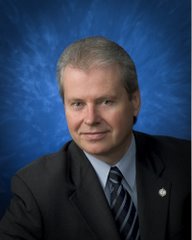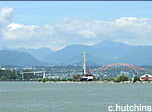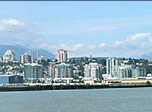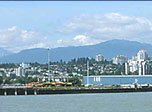October 2016 António Manuel de Oliveira Guterres (Portuguese) -born 30 April 1949 is a politician and
diplomat who is the designate Secretary-General of the United Nations. Guterres was Prime Minister of Portugal from
1995 to 2002. He also served for a time
as President of the Socialist International.
He was the United Nations High Commissioner for Refugees from June 2005
to December 2015. In October 2016 the
United Nations General Assembly elected him to become the next United Nations
Secretary-General, succeeding the retiring Ban Ki-moon. He takes over in January 2017.
Political career
His political career started in 1974, when he joined the
Socialist Party. Shortly thereafter, he
quit his previous academic life, and became a full-time politician. In the
period following the Portuguese Carnation Revolution of 25 April 1974, which
put an end to Caetano's dictatorship, Guterres was closely involved in the
organization of the Socialist Party, especially the Lisbon section. Guterres became one of the party leaders and
held various offices.
His UN appointment was the result of a flawed process. Essentially,
the five permanent members of the U.N. Security Council (China, France, Russia,
the United Kingdom and the United States) find someone they can all live with. If even one says no to a candidate, the
candidate is out. They then tell the rest of the Security Council, and
ultimately the 193 states represented in U.N. General Assembly, to live with
that choice.
The result is a lowest-common-denominator choice. Someone who would not “rock the boat.”
Someone who would not “spring surprises.”
In the worst case, it gives the
super-pliant Kurt Waldheim (Austrian, 1986-1992) who elevated the role of the
P5 (permanent five) even more. In the
best case, there is Dag Hammarskjöld (Swedish, 1953-1961) who tried to rise to
the organization’s founding vision.
This time, as the search for Ban Ki-moon’s successor and the
United Nation’s ninth secretary-general began, there were calls to make the
process more transparent and more consultative, but in the end it was a
controlled appointment.
Guterres is set to become the next United Nations
Secretary-General on 1 January 2017, following his election by the UN General
Assembly on 13 October 2016, based on the dictate of the 15-member UN Security
Council.
The U.N. itself needs reform, especially on the Human Rights
Council, so the new man has a big job for any change. U.N. critics say that the problem has to do
with the U.N. itself. “We’re seeing
very strong criticism by humanitarian workers about how U.N. agencies in Syria
are effectively complicit with the regime (of Syrian President Bashar Assad) in
distribution of aid,” which many fear is being used to benefit government
supporters, said Hillel Neuer, executive director of U.N. Watch, a Geneva-based
monitoring group. “The secretary general is inheriting a big
mess.”
The UN’s High Commissioner for Human Rights, Zeid Ra'ad Al
Hussein, this week said Russia and Syria may have committed war crimes in
Aleppo. U.N. leaders should change
their rules, the commissioner said, so that permanent members of the U.N.
Security Council cannot use their veto power to avoid referrals to the
International Criminal Court.
Such an effort would have “no chance because Russia would
veto it and China would veto that,” said Bill Richardson, a former U.S.
ambassador to the U.N. under then-president Bill Clinton. Each
U.N. agency is its own fiefdom and they don’t like to be managed by a secretary
general, Richardson said.
The world body does some good work, but “a lot of the appointees in top positions are
political patronage, so you don’t always get the best people,” Richardson said. “This is a huge bureaucracy with very serious
management issues.”
The socialist pedigree of António Guterres does not bode
well for the world and the UN’s influence or helpfulness.
With files from USA Today and www.theconversation.com









No comments:
Post a Comment